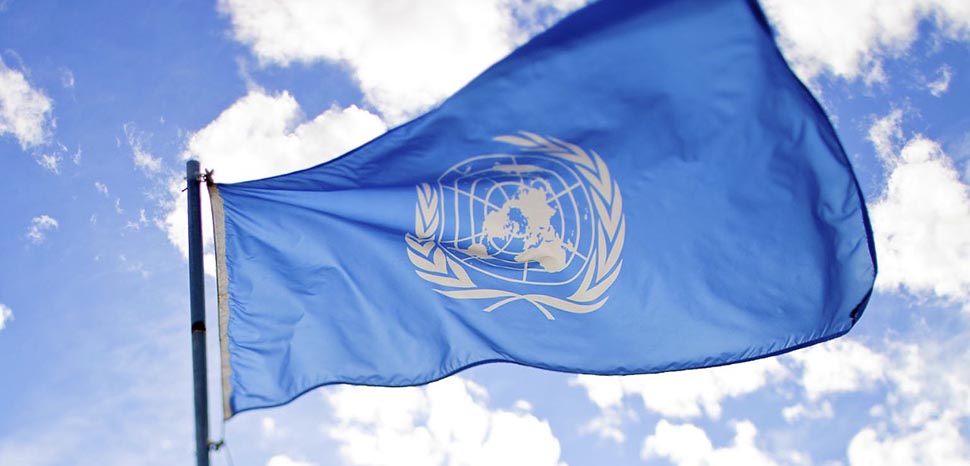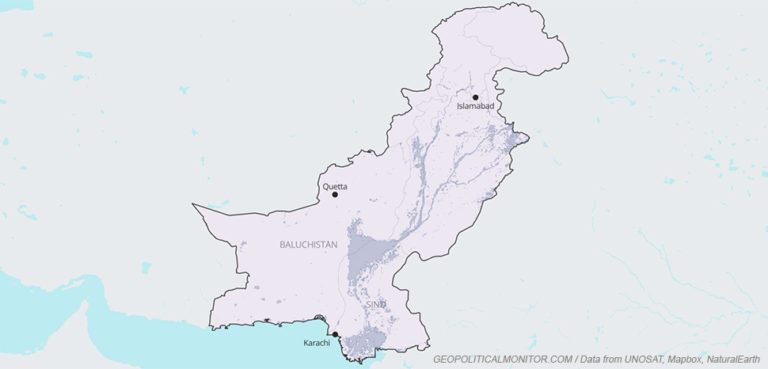Meaningful gains in aspects of contemporary, high-profile processes of international cooperation and multilateralism have taken on a Caribbean Community (CARICOM)-related character.
CARICOM has a special focus on amplifying its members’ voices and advancing concerted attention to and action on their interests in international affairs, emphasizing the importance of “enhanced co-ordination of Member States’ foreign and [foreign] economic policies.”
Drawing on International Relations (IR)-related scholarly insights that “leadership requires an institutionalised context“ and that it manifests in institutional terms, not just structurally, I glimpse at five international-level instances where such small states have a sharper focus on leading from the front. I also showcase some interests driving their associated statecraft, for which international organizations (IOs) are hands down the difference makers. In analytically treating these states as more than just variables of system-level dynamics in hegemonic order making (of one kind or the other), whose claims downplay their diplomatic hand, we can uncover how CARICOM is leaving its mark on global leadership.
Top-line Diplomacy, with a CARICOM Character
Case No.1
Recently, Ambassador and Permanent Representative of Trinidad and Tobago to the United Nations (UN) Dennis Francis was elected by acclamation to the presidency of the 78th Session of the UN General Assembly (UNGA). A historic first for Trinidad and Tobago, this election took place against a backdrop where it was the Group of Latin America and Caribbean States’ (GRULAC) turn to preside over that body and it was CARICOM’s turn to present a candidate accordingly.
Prior to Trinidad and Tobago’s upcoming UNGA presidency, the following CARICOM member states held that role: Antigua and Barbuda – 68th session (2013); Saint Lucia – 10th emergency special (resumed) session (2004, 2003) & 58th session (2003); Guyana – 48th session (1993).
Amid rising global stakes, it is significant that Trinidad and Tobago is set to assume the UNGA presidency. By UN Secretary-General António Guterres’ own reckoning, this country of around 1.4 million people will take up this role at a time when the UN arguably faces what perhaps is its most fraught moment to-date.
Weighing the significance of the UNGA’s contribution at this time against that of the UN Security Council (UNSC) is revealing for the following reason. The latter body, whose primary responsibility is taken up with the maintenance of international peace and security, has seen its ability to function undermined by the “geopolitical moment” brought about by Russia’s full-scale invasion of Ukraine. Given the Ukraine war-related logjam in the UNSC, but also the “global collective action” imperative regarding global issues of the day, the international community has had to turn with increased frequency to the UNGA—the world’s ‘town hall.’
What is more, chairing such an international body affords an opportunity to steer “a potential power platform in international cooperation.” This should be seen as driven by the logic that having such a seat at the global governance-related table is decisive for bringing about fundamental rethinking on how to address inter alia CARICOM’s enduring challenges; all while rallying support for requisite policy action and, possibly, clinching “significant outcomes in international affairs.”
Case No.2
Moreover, non-permanent UNSC membership is also highly sought-after by the 14 sovereign, Small Island and Low-lying Coastal Developing States (SIDS) which comprise the CARICOM bloc. In point of fact, “[t]he political leadership and foreign policy establishment in this type of state seek to astutely use this status tactic to good effect in order to play more of a role in global affairs and corresponding international regimes as well as discerning opportunities to successfully achieve their foreign policy goals.”
Guyana was the first of just a handful of CARICOM member states that to-date have held a non-permanent UNSC seat, having done so in the first instance only nine years after it was admitted to the UN in 1966.
In January 2020, St. Vincent and the Grenadines became the smallest country ever to secure the GRULAC allocated, non-permanent seat on the UNSC. St. Vincent and the Grenadines had a particular interest in calling attention to “pandemics, environmental challenges, climate change and its security consequences and the nexus between development and peace and security;” all of which align with CARICOM member states’ respective national interests.
Insofar as international politics is constitutive of “status communities,” St. Vincent and the Grenadines’ status got a significant boost in those terms. This matters, given that “small states’ positions in international relationships create constraints and opportunities in their pursuits of key goals.”
Just a few weeks ago, Guyana was elected as a non-permanent member of the UNSC for a two-year term, which spans January 1, 2024 to December 31, 2025. This is the third time that Guyana has secured this seat and it is an accomplishment that distinguishes it within CARICOM. Only three other CARICOM member states have also had stints on the UNSC, but only either once or twice.
Georgetown is touting an ambitious UNSC-related focus, which will likely redound to the benefit of CARICOM, not least because of the bloc’s special interest in its designation as a Zone of Peace.
Case No.3
Beyond the UN, in the realm of interregional diplomacy, earlier this year, at the VII summit of the Community of Latin American and Caribbean States (CELAC), St. Vincent and the Grenadines assumed the pro tempore presidency of this 33-nation bloc.
The first CARICOM member state elected to this position, this eastern Caribbean country would go on to co-chair the 2023 EU-CELAC summit, held last month. In a context where the two-day summit was overshadowed by “wrangling over” the said geopolitical moment, St. Vincent and the Grenadines Prime Minister Ralph Gonsalves had to rise to the occasion in seeing through the summit declaration. Gonsalves had a huge stake in doing so, taking into consideration that: 1) It afforded yet another opportunity for his country and the Caribbean to burnish their credentials as a global leader; and 2) EU-CELAC relations cannot be viewed in isolation from the Caribbean’s long-standing relations with the EU, which in recent years have been transformed under the aegis of a new legal framework (known as the post-Cotonou Agreement) and are a key component of enhancing its multilateral footprint in service of its developmental objectives.
Case No.4
It is also hard to see past the hand of CARICOM when thinking about climate action which, to a significant degree, informs the foreign policy choices of this bloc. It is of some significance that Guterres, who has emerged as a friend of these states, appointed Grenadian Simon Stiell to head the UN Framework Convention on Climate Change. Indeed, in staking out a consequential role in both regards, these states are enjoined to leverage coordinated diplomacy, while “bolster[ing] … relations with like-minded states.” This diplomatic positioning is responsive to the climate change-related reality regarding CARICOM member states, for whom the stakes are high.
That reality has laid bare the costs and risks, which are steadily accumulating. Consider that while it is widely viewed as the “defining crisis of our time,” global climate change is recognized as “the defining feature of the Caribbean developmental landscape.” Having regard to the emphasis placed on extreme global weather and climate-related events in the Intergovernmental Panel on Climate Change’s sixth assessment report, it is instructive that “[t]he Caribbean is the most exposed region to climate-related natural disasters, with estimated adaptation investment needs of more than $100 billion, equal to about one-third of its annual economic output.”
It is now clear that for Caribbean countries, the climate crisis and its multi-pronged fallout are especially untenable. Just in economic growth terms, they are the worse for it, not least because they are among the most indebted in the world. That SIDS bear the brunt of climate change, all the while facing what are well-documented structural constraints, their developmental prospects are burdened still further. (An illustrative example is Dominica’s experience with Hurricane Maria and its aftermath.)
This at a time when there is little of note pertaining to a much-needed paradigm shift in respect of concessional financing criteria vis-à-vis most CARICOM member states. Indeed, while the basic concept behind a multidimensional vulnerability index seems reasonable enough in many quarters, efforts to advance on the same on the international stage have yet to gain full momentum. All the while, efforts to move the needle on climate change-related financing solutions have yet to close the gap between best intentions and meaningful action. Simply put, while COP27 ended with great fanfare regarding a much-touted historic loss and damage fund for developing countries, with establishment players underscoring that “the negotiated text recognized the need for financial support from a variety of sources, no decisions have been made on who should pay into the fund, where this money will come from and which countries will benefit.”
Making headway in that regard, tantamount to developing country-centric potential gains, would be critically important for CARICOM member states.
It is noteworthy that in recent decades, the international community’s resolve in supporting the cause of SIDS like those of CARICOM has strengthened. The Accelerated Modalities of Action (SAMOA) Pathway, in which CARICOM remains integrally involved, is a landmark multilateral initiative that has brought this cause into focus.
Case No.5
Climate change is no less challenging an issue on the global agenda than reform of the international financial system, which is yet another initiative that Barbados is out front on. Barbados Prime Minister Mia Mottley is leading a growing chorus of calls for an overhaul of the international financial order, all in ways that are influencing debate on whether certain international institutions and the development aid system are fit for purpose.
CARICOM Heads of Government are seized of the urgency of bringing on stream “measures to improve the functioning of the global financial system, particularly in the context of the numerous crises adversely affecting the Community and which put Middle Income Countries at real risk for reversal of economic gains and descent into impoverishment.” Accordingly, especially given their SIDS-related concerns, these leaders have thrown their weight behind The Bridgetown Initiative, agreeing that it is “a viable model to build on with respect to the reform of the global financial system.”
More broadly, among the top drivers of the debate on the important issues at stake relative to global governance reforms vis-à-vis SIDS are “altering the way official development assistance is defined, generating new forms of debt relief, reforming climate financing mechanisms, and facilitating access to the labour markets of the Global North.” In a number of quarters in the Global South and Global North, concerted efforts are already underway to make that happen. Once again, CARICOM is deeply involved diplomatically.
Thus far, the signals from establishment power centres have been encouraging. Yet, there is seemingly a long way to go to achieve reform-related goals. Nonetheless, it counts for a lot that Guterres, who is pushing for his organization’s membership to come back on track to achieving the 2030 Agenda for Sustainable Development in a post-COVID-19 pandemic era world, has come down hard on the global financial architecture.
Implications and Conclusion
What should be readily apparent from the foregoing analysis is that small states in international politics have drawn renewed (even heightened) attention, and in so doing are dispelling the conventional wisdom about them being “marginal actors who exist on the periphery of global affairs.” I have argued firstly that, in defiance of the large qua powerful/dominant state-leaning structural realities of the international system, which is hierarchically configured, today’s CARICOM bloc is best seen as having successfully tapped into international relations-based agenda setting.
My aim, however, is not to oversell this point. Rather, in the terms outlined above, recognizing that their power repertoire is circumscribed by size-related circumstances and the nature of the international system, those small states are shown to have a keen interest in disrupting conventional understandings of who should lead globally and in what aspects of global governance they should stake a claim to leadership.
This finding has implications for how we should view small states’ foreign policy concerns and IOs which, in the overall scheme of things, are a pivotal factor in these states’ foreign policy calculus.
Certainly, key power players have also gotten behind them in that regard, at a time when an emergent petro-state among them “has suddenly become a country of real interest to the most powerful nation in the world.”
This was not always the case. Jamaica’s involvement, for instance, in concerted attempts to bring off the overambitious New International Economic Order (NIEO) comes to mind. This now decades-old transnational initiative held out the promise of systematically cutting away at the legacies of colonialism and empire that the global political economy perpetuates, as characterized by its backers, who were concerned with the “pervasive effects of the operation of world capitalism.” Ultimately, NIEO proponents were met with varying degrees of push back in some Western quarters.
Second and relatedly, with Trinidad and Tobago’s leadership role in the UNGA on the international politics-related horizon, both this southern Caribbean country and, by extension, CARICOM will take a step forward regarding global leadership. (In all fairness, while significant for the respective states, the UNGA and UNSC cases herein must be seen in the context of the GRULAC turn and its internal rotation.)
More than that, and finally, given the apparent heightened positioning of the other global leadership-driven diplomatic manoeuvres in question in such states’ foreign policy praxis, the nexus between that sort of leadership and their international agency becomes apparent. Indeed, recent decades have seen an increased focus on the part of CARICOM member states on this praxis. The latter is steeped in a logic of international agency, as viewed through the prism of an ever-evolving, more complex contemporary international system.
An Agenda for Further Research on CARICOM and Global Politics
This article contributes to the development of a better understanding of CARICOM member states’ strategic approach to power vis-à-vis the conduct of their international relations, underlining the prominence given thereto to IOs. This in a context where the mainstream scholarly reading of international relations straightjackets small states, as it rests on the belief that “a state’s power [is] the combination of the tangible resources used to serve its interests.” That perspective is paradigmatically ill-configured to take into account the extent to which IOs are force multipliers for such states’ international cooperation, a driving force behind their development.
That said, this article leaves many unanswered interrelated questions about:
- How the bloc has sought to attain its many achievements on the international stage;
- How the bloc has successfully boosted its standing in the international community and under what conditions; and
- What the bloc must now do better and how so.
There is still much we do not know about how CARICOM has made the most of its diplomatic hand, even though some IR scholars have made important intellectual strides in that regard. Over the last 10 years, a period of seismic shifts pertaining to the international system, this matter has received far too little scholarly attention.
All the more reason, then, that the issues under reference ought to be up for debate, with a view to gaining a full picture of and shedding new light on CARICOM’s associated diplomatic playbook.
The views expressed in this article are those of the author and do not reflect the official policy or position of The UWI. The author would like to thank Ambassador Patrick I. Gomes, Ambassador Colin Granderson, Ambassador David Hales and Ambassador Riyad Insanally for their very helpful comments on earlier drafts of this article.




